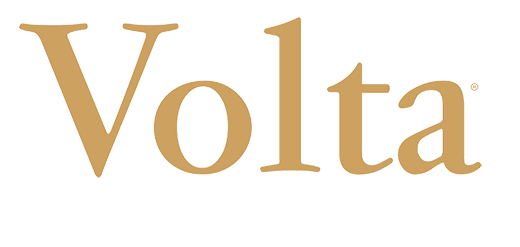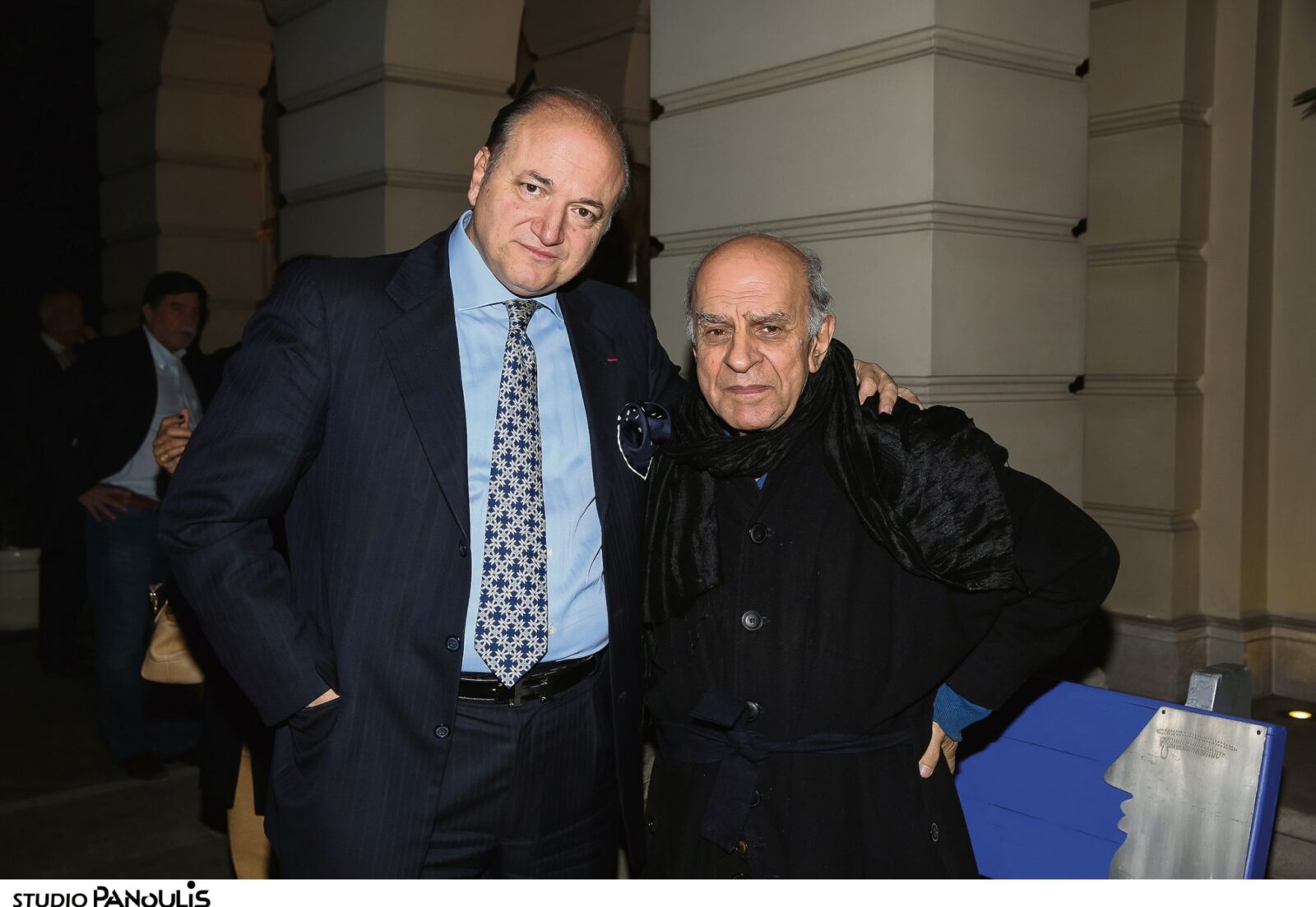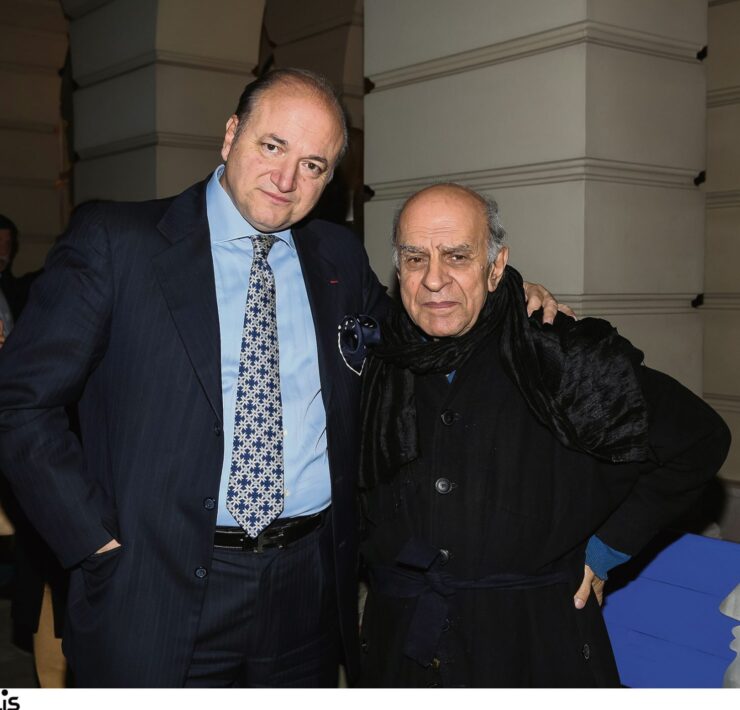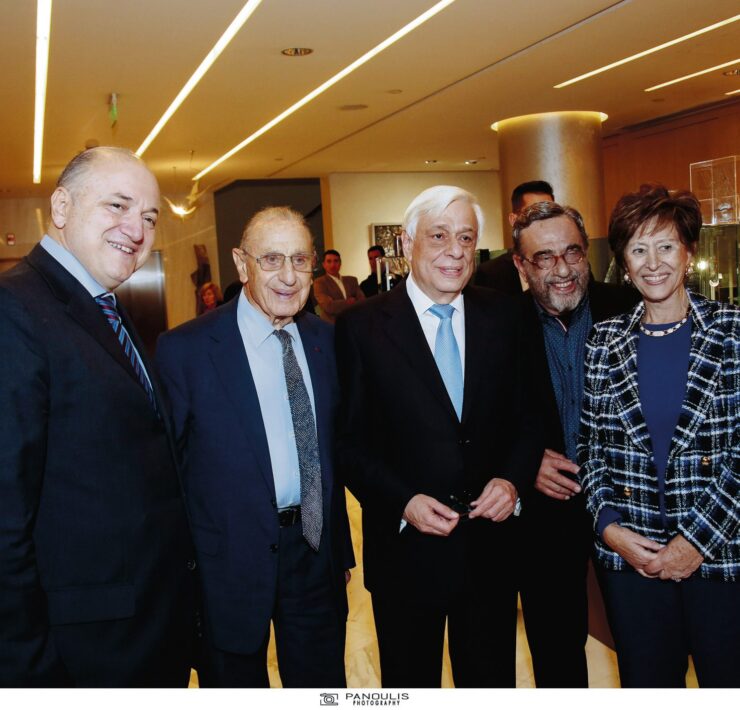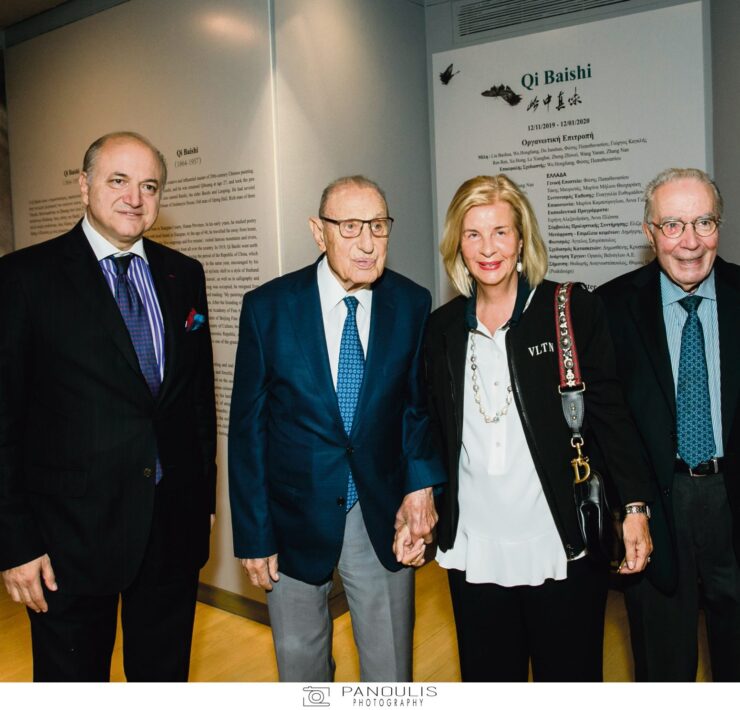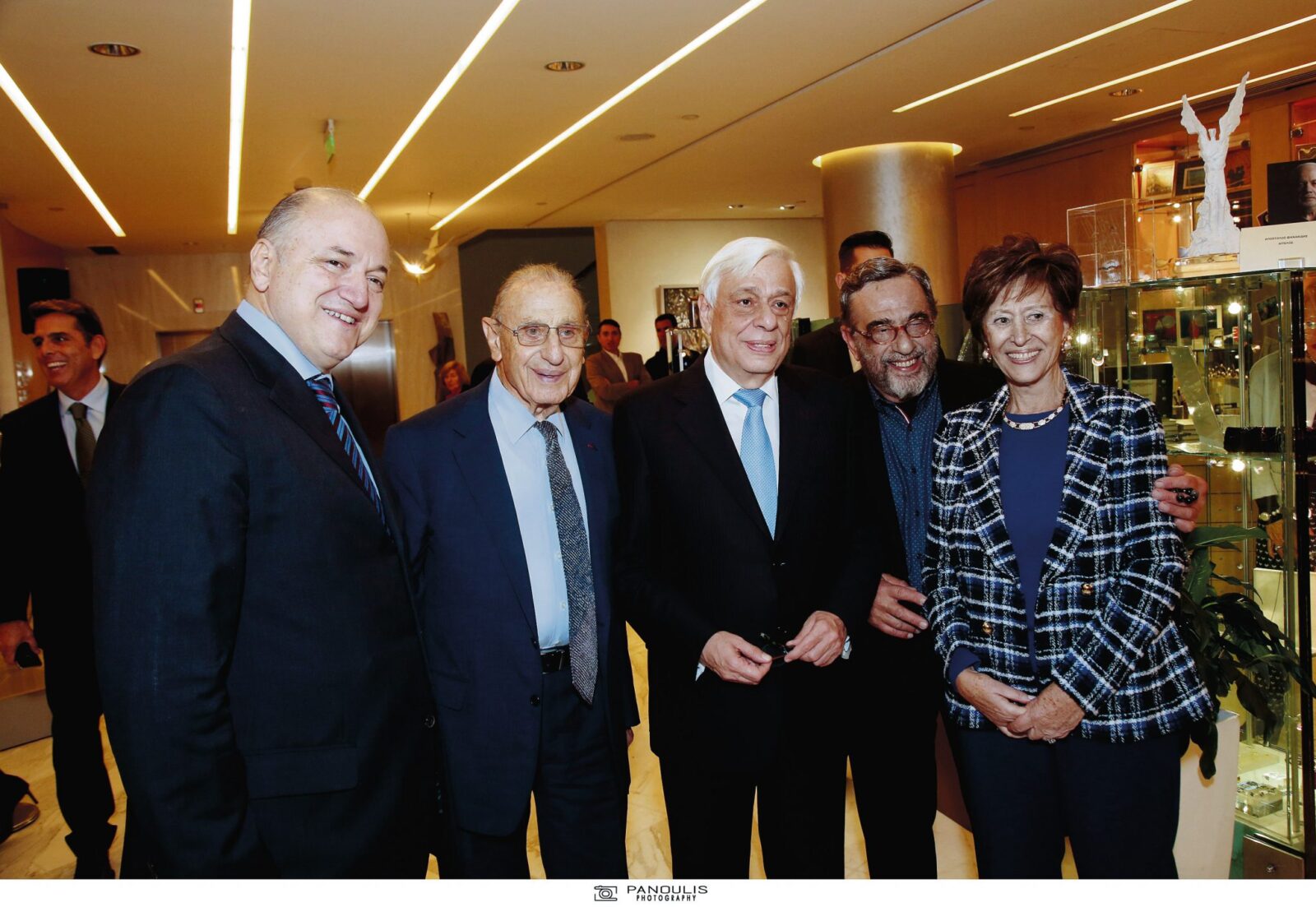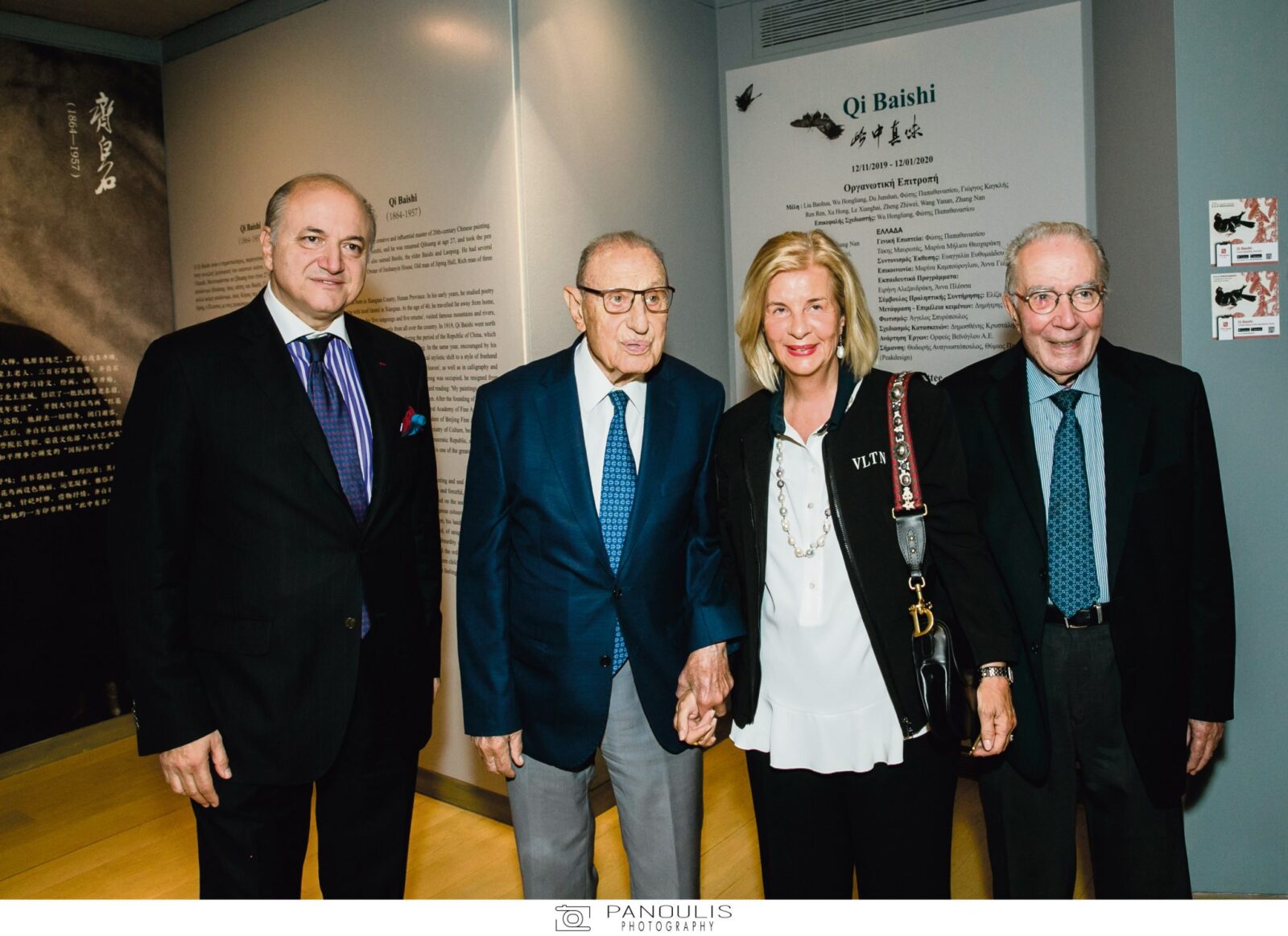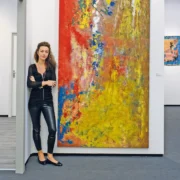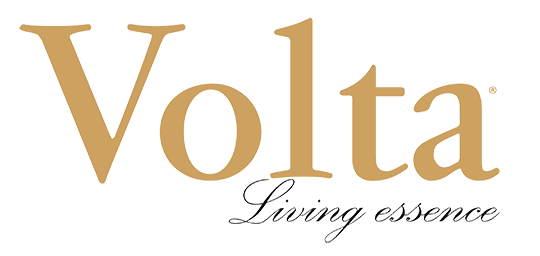Dr. Fotis Papathanasiou – General Manager at the B&M Theocharakis Foundation for the Fine Arts and Music
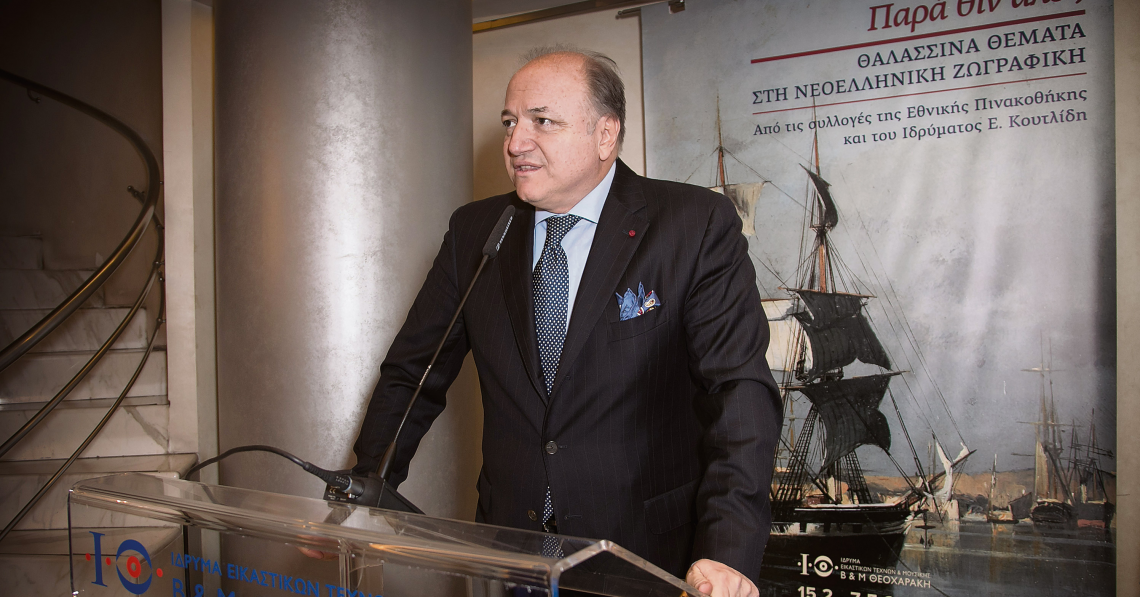
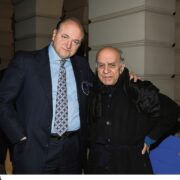
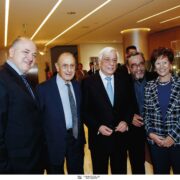
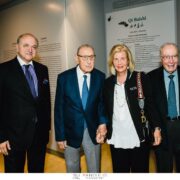
Dr. Fotis Papathanasiou – General Manager at the B&M Theocharakis Foundation for the Fine Arts and Music
Dr. Fotis Papathanasiou – General Manager at the B&M Theocharakis Foundation for the Fine Arts and Music
An intellectual and an enthusiast of the arts and opera, Dr. Fotis Papathanasiou is the General Manager of the B&M Theocharakis Foundation for the Fine Arts & Music. He has a long and impressive tenure as a doctor, a professor of cultural diplomacy, an author, Deputy Mayor for the City of Athens, Secretary General and Vice President of the Board of Directors for the Greek National Opera, special advisor to France’s Minister of Culture Jack Lang and General Manager of the Greek department of the Centre for Diplomatic and Strategic Studies of Paris, since 1994. He founded Technopolis and the Maria Callas Museum. He has been honored by three Presidents of France, who have presented him with the medals of the Knight of the Legion of Honor, and the Brigadier of Letters and Arts of the French Republic, as well as the Medal of Sciences and Arts of the Austrian Republic. A multi-faceted personality, as well as a person with a calm demeanor and approachable to anyone that meets him in person.
Over the last 30 years you have served in the area of culture and you are intimately familiar with the dynamic, as well the weaknesses of our country. Does Greece utilize the culture it produces as well as it should?
The problem runs much deeper than our modern culture production. We have never utilized our culture in an organized fashion, as a means of power in terms of international relations or as branding, in terms of marketing, despite the fact that our country has the greatest arsenal in the world. Our problem is that we bear with difficulty the colossal weight of our spiritual heritage. In our customary manner, we oscillate between boastfulness for our ancestors and nihilism. Politicians in their speeches frequently say that we pay too much attention to our ancient heritage, another cliché, while we neglect modern culture. However, the truth of the matter is that our ancient heritage, that gave birth to western civilization, is the reason why our country is recognized and supported by people all over the globe, without the need to do so much, as lift our little finger. Moreover, we do not even pay the proper attention to this heritage, that’s clearly demonstrated when you look at the state of our archaeological sites. Our modern culture accomplished great things when it based its principles and values on those of our ancient civilization. By this I don’t mean copying, but inspiration by the same principles. Such examples are the anthropocentric paintings of Tsarouchis and the poems of Elytis. The tradition is continued today, through the sculptures of Varotsos, the works of Panagiotidis and the paintings of Fasianos or Samios. There is absolutely no contradiction. And finally, the answer to your question is no, because just like in many other areas, we lack structure and consistent effort.
French socialist and former Minister of Education and Culture, Jack Lang wrote the foreword for your book “On the Sun’s course”. Can you comment on your relationship with this great philhellene?
Jack, who was named after an English fellow co-combatant of his father, is a great man to whom France and French-Greek relations owe a lot. We met many years ago, and he honored when he chose me as his collaborator. His activities cultivated modern culture in France and rescued everything worth rescuing. The measures that he took for the preservation of historic heritage were as decisive as the ones that promoted modern culture.
He helped thousands of young artists present their work and he literally saved books, while opening museums and creating cultural structures in all of France. Even the World Music Day was his idea. He is a truly great philhellene. He keeps an edition of Thoukididis by Pleiades at his bedside, so he can read from it every day. A fact little less known about him is that before becoming Minister of Culture, he used to teach International Law at the University of Nancy, specializing in Marine Law. Jack Lang proposed the legal status of the Archipelago, in favor of the Aegean Sea, which has changed everything. We have been close friends for a long time. He is by far the best and most loyal friend I have ever had. He is excellent at his craft.
Unfortunately, he was not appointed Minister of Culture for life of this great Greco-friendly country. He is married to an amazing woman, Monique, and he has two special daughters. Unfortunately, Valerie, a great “Comédie Française” actress, died a few years ago at a very young age, a tragedy none of us will get over. He has many friends in present day Greece, a country he loves as much as the ancient one. This man is not plagued by contradictions. He now runs the Institute of the Arab World and has completely transformed it.
Jean Monnet once said that “we should start over creating the European Union with a fresh start is based on culture”. What do you think?
This statement is disputed, but its correctness is affirmed. The only thing that can surmount small or big national interests, created by centrifugal forces, is the sense of a common spiritual origin. The Erasmus program was useful, but it should of been larger in scope and mandatory. It’s not by luck that it bears the name of a great Hellenist. The faith in our mutual civilization gave birth to the philhellenic movement. The three pillars, Athens, Rome and Jerusalem should form the base of the European Constitution and infuse Europe’s education. Then the Union would be secure.
In a material dominated world, is the imprint of modern Greek culture durable? Do we fall short? If we do, why is that?
Yes, we have a strong imprint. All you have to do is visit any of our hundreds of theaters, venues for visual arts and other cultural institutions where modern culture is produced. We do not lack in any way, but we could improve, inspired by the principles and the values of our heritage.
Do you think that coming out of the crisis, Greece is restarting? How does it include culture?
Culture led this new start and is one of its main causes. During the crisis, Greeks realized they needed consistent reference points, than what consumerism provided during the past times of abundance. Our Foundation tripled its audience, when consumerism dropped by 50%. This shows something. The crisis, brought to the forefront both flaws and virtues. All those that processed the message, even though they suffered loses, managed to come out of the situation a winner. Culture is not just a spiritual power and therefore a financial power, it has a direct economic aspect with enormous potential for growth. In Germany, more people work in the cultural industry, than in the automotive industry. It involves more than 120 professions, that gravitate around the basic needs of artists. To name a few, manufacturers of frames and music instruments, publishers and theatrical costume makers. I will not even try to tackle the incredible potential around the development of archaeological sites and museums, for which I rely on knowledge of the Minister of Culture.
Can the “digital” era promote arts, or does it create a distance that extinguishes any spiritual spark?
Digital tools have great potential for the promotion of arts, for the first time ever, all visual arts, music and literature are accessible from everyone free of charge. This provides multiple triggers for potential creators and the audience that will sustain them. Art is a vital need for humans, it makes them stand apart from animals and it will always find a way.
Greece 2021: What are your plans for the participation of Theocharakis Foundation?
For years now, our Foundation has been actively working in this area, organizing an important exhibition about philhellenism in art through the Varkarakis collection and music premiers of philhellenic songs of the time. We’ve been ready for some time now, when 2 years ago we joined with great enthusiasm the foundations initiative to organise an event for the 200 year anniversary, with Giannis Manos as coordinator.
We will be hosting an art exhibition about philhellenism, a tribute to women during the revolution with artwork from the invaluable Varkaraki collection, several concerts dedicated to German, French, English and Italian philhellenic songs, as well as 5 musical analogues that we have prepared with Magda Mavrogianni about historical figures such as Kapodistrias, Byron, Bouboulina, Karaiskakis, etc. We are also organizing a conference about art during the Greek Revolution, with special lectures and we are working on a collaboration with Lykeion Ellinidon.
All these activities have already been planned and I am certain they will clearly depict the importance that visual arts and music played in the creation of the philhellenic movement, that drew the attention of public opinion in the West to the struggle of the Greeks and finally led to the aid of the Great Powers.
We look forward to welcoming all Greeks, and especially young people to attend and attain knowledge in an entertaining way.
